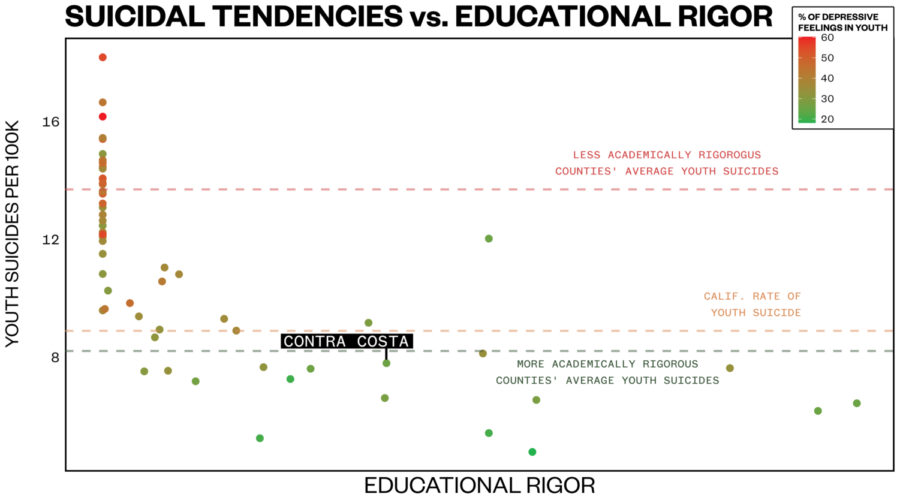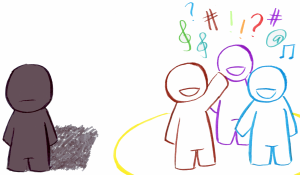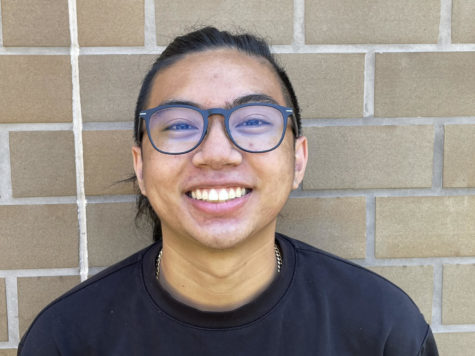Dougherty academic culture is good — stop pretending like you don’t like it
The scatterplot indicates that more academically rigorous counties, such as Contra Costa County, have lower suicide rates.
April 14, 2023
It’s a new school year once again, and although the last two years have been tumultuous, now that the first couple of months have passed and students have begun to settle in, it’s clear that a couple of things remain consistent about school at DVHS: One teacher will inevitably be fired for racism or misconduct; students will procrastinate endlessly on their homework and their learning in service of TikTok; and possibly my favorite part of a new school year at DV: students will find a way to blame this procrastination, its resulting stress and their ineptitude at organization on the mythical “DV Culture.”
Now I’m not going to deny that stress does exist or that school is a huge part of it, especially here at DV. We’ve all heard the statistics before: 73% of DV students have taken at least one AP exam and 85% of students surveyed by the Tribune are “extensively stressed by school related challenges,” a 50% increase from the nationwide average.
But you know what? I just don’t have it in me to care a single bit. Year after year you’ll hear student advocacy for teachers to decrease homework and classwork, on limitations to the number of AP classes students can take, or for a disembarking of a mythical “Asian American culture”’s standards of academics.
Now I won’t deny these would reduce stress, but here’s a crazy proposition that will absolutely blow your mind (teachers hate me for this trick): What if the key to decreasing stress was to not take as many difficult courses?
I know, crazy talk. Personal action to solve personal problems? Ridiculous. Humor aside, it does frustrate me how nobody asks for the root of problems. Think about it: if DV academic culture is the result of taking too many stressful classes, why not just take less stressful classes?
When people ask for a reduction in their stress loads or coursework, it’s patently clear that what they’re not asking for is actually a reduction in their stress, because again, they would just take less stressful classes if they truly wanted less stressful classes.
What is therefore implicit in those requests is that because most DV students take at least one AP course, they are then inherently asking for a reduction in the course load of an Advanced Placement course. Let me repeat that: high school students taking college level courses dictated by a national, standardized organization are asking for their course loads to be reduced.
Riddle me this Batman, how is one supposed to reduce the course load of a class and still properly prepare students for the next level of schooling within that subject? Imagine for a second that DV instituted a reduced coursework policy. For all AP classes, there was the same amount of homework and classwork as its regular high school level counterpart. What happens when the AP test comes? Will every student be okay with not being prepared for the AP test? Will they be prepared for the next college level course that follows that AP class? Because they didn’t have the same amount of coursework, the same amount of preparation or the same amount of effort put into it, the same amount of stress put into it.
The reality is that AP courses are difficult bec cause they’re college level courses and you’re not a college student, you’re a high schooler. That’s not an opinion, that’s a fact. College courses are difficult, there is no denying that, and there’s no denying the general reason why they’re difficult. What is an opinion is whether or not you ought to take a college level course. But if you’re going to take a college level course, don’t complain that it’s difficult or stressful, that is the expectation. You can’t have your cake and eat it too.
What frustrates me most about blaming everything on Dougherty academic culture is that people act like stress is a bad thing. Yes, again I’ve heard it all before. Dougherty stress is driving kids mental health through the floor, it’s driving kids to the verge of suicide, they’re unable to have a proper work-life balance. And again, I’m not going to deny any of the numbers. The truth is there, students at Dougherty have committed suicide and students at Dougherty do have poor mental health.
But what nobody ever asks is whether or not that is because of Dougherty. To assert as much would mean to say that students at Dougherty commit suicide at higher rates or have worse mental health than students who don’t have the academic pressures of Dougherty. But that’s not the statistics people will cite. They will only cite the Dougherty specific statistics, not necessarily because of deliberate malevolence, but at least in part because the statistics support the narrative they already have in mind: Dougherty is a kniving school that pressures students to commit suicide through its academic pressures.
So before you argue that students are driven to suicide specifically because of Dougherty academic culture, let’s ask a surprisingly simple question: how do suicide rates vary by school and by educationally rigorous areas?
Well, fortunately enough, the data is actually very clear: the more academically rigorous an area, the less students commit suicide and the better their mental health.
As the schools in a school district and county become increasing academically challenging, youth suicides actually decrease, not increase. For counties without a highly ranked and thus academically challenging school district in California, their average adjusted rate of youth suicides per 100k was 13.35, as compared to counties with academically challenging schools which had an average adjusted rate of youth suicides per 100k of 7.39. That’s nearly double the rate of suicide in counties with less academically rigorous environments, which seems to imply that highly academically rigorous counties like Contra Costa, of which Dougherty is a part of, actually decrease rates of suicide. In fact, Contra Costa’s rate of suicide is actually even lower than the average for highly academically rigorous counties like it, sitting at 6.32 per 100k as compared to 7.39 on average for counties with similar academic rigor.
What all of this data points to is a very clear conclusion: not all stress is made equal. Being poor, having gun violence surrounding you and having a broken family is far more stressful and far more damaging to a person’s mental health than having too many AP courses.
The reality is that the stress we experience isn’t unequivocally negative. Ask yourself, what is bad about being pushed to be the best? What is wrong with having a culture where everyone is encouraged to be better and academics are the main focus of the school? Has anyone stopped to ask themselves before they criticize Dougherty culture how lucky we are to have academics be supported and not a point of bullying? The very fact that we have a culture that promotes academic achievement, no matter how seemingly rigorous that culture may be, shouldn’t be viewed as a negative, but as an overwhelming positive. Again, we have lower rates of suicide and better mental health than almost any other county in California, and on top of that we have the luxury to be pushed towards academic success that will invariably help us in our future career.
But the funniest part about all of this is that I know for a fact none of you would actually break down Dougherty academic culture if you were given the chance.
Let’s propose for a second that we abandoned Dougherty academic culture. Let’s say that 90% of the graduating class of DVHS next year took at most two AP classes, took one extracurricular that more or less was a hobby club, did minimal studying for the SAT and got mediocre results, and maybe had an outstanding essay along the way. Let’s also assume that the other 10% of the graduating class was more along the lines of a current DVHS student: seven APs lifetime, 1450+ on the SAT, at least three extracurricular clubs, and a similarly good essay. Which one is going to get into the same colleges Dougherty students get into now, and more importantly, which way does Dougherty academic culture shift after that?
That’s not to say that those who do not take advantage of it will live sad, miserable lives. But the thought of missing out on once-in-a- lifetime opportunities because you didn’t take advantage of your high school will inevitably be enough to move people slowly into the academic marathon that currently is DVHS. Ask yourself, will you sit idly by and let your chance at NYU or UCLA slip by because you wanted to have an easier high school?
I challenge you to consider this not because I disagree with the sentiment that having an easier high school is nicer than not, but because pressure cracks coal or turns it to diamonds. Culture is founded not just on the willingness of its members to participate but on their fear. The fear of wasting the many advantages we have been given by attending DVHS will shift students towards high marks as long as the school has the resources it does.
If you want to break down Dougherty culture, be my guest. We can knock it down to size if we show it our strength, at least temporarily. But be warned: when it is gone, when the day comes that we become just a normal student body, when the letters of college acceptance (and rejection) knock at the door, which of you will bend and which of you will break?





